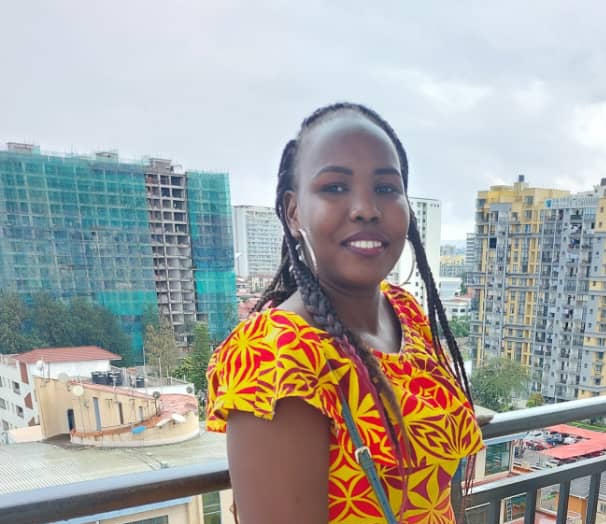By Esther Aurelio Agira Lohutuhureng
Conflicts over control of land and water resources between farmers and pastoralists are common in farming areas. Farmers grow crops as a source of income as well as food security for themselves. They grow sorghum, maize, millet, vegetables, potatoes, sweet potatoes, and cassava. Some of these crops the farmers grow are sold out, and the money is used to buy some commodities that they lack. On the other hand, pastoralists keep cattle for the production of milk as well as meat when it is slaughtered. It is also used to pay the bride’s price, which is normally known as the dowry. Cattle keeping is also one of the important economic activities for pastoralists.
Communal conflicts occur among pastoralists and farmers when livestock enter the farmers’ land and eat whatever they cultivate. Besides pastoralists, keeping their livestock where farmers are supposed to cultivate is another source of conflict. In addition, competition over resources, including productive land and water, is another factor that may lead to conflict.
The farmers-herders crisis in other parts of the Equatoria Region is quite alarming and requires short- and long-term solutions. It is known that the economic activities in South Sudan vary from one community to another. Some communities heavily depend on crop growth, while others keep animals and practice fishing. Some communities do depend on more than one source of livelihood. The presence of these different economic activities practiced by various communities is enough evidence that our country is very rich in natural resources. Therefore, our diversity in terms of the economic activities that the different communities are practicing should be something to be proud of as South Sudanese.
The occurrence of the flood in most of the states in South Sudan has interfered with the normal activities of most of the people. The farmers as well as the herders had experienced the impact of the flood. These have resulted in some of them migrating to other areas where they can find safety. Some of the cattle herders have moved from Jonglei State due to the flood that hit the state, and they resort to coming to the Equatoria Region seeking a better place for themselves and their livestock as well.
In reference to the report by the No. 1 Citizen Newspaper dated June 13, 2023, the governor of Western Equatoria State stated that cattle herders have started leaving Mundri West County of Western Equatoria State, following his order to cattle herders to return to their home of origin, following the conflict between herders and farmers after cattle destroyed farm crops in greater Mundri. However, this is not the first time the herders have had a dispute with the farmers over the grazing land, whereby the herders purposely allow their cattle to destroy the farmlands. Moreover, it happened in Magwi County, Eastern Equatoria State, in March 2022, where the cattle keepers were involved in conflict with the host community for the same reason that the animals were inferring from their farming activities. Nevertheless, there was great loss in Magwi, both in properties and lives, including an old woman who was burned inside the house.
The host communities are always the victims, and the price of their hospitality is the death of their beloved ones. The herders were so ungrateful to the people of Magwi and Mundri. Instead of living with them in harmony, they stubbed them on the back. Nevertheless, in some cultures in South Sudan, if someone hosts you and gives you food and shelter, and yet you kill him or her, the perpetrator will be cursed. It is believed that the spirit of the innocent person you killed will haunt you.
However, for the sake of the security, unity, and peace of the country, a mutually satisfactory solution should be provided through an open discussion with intellectuals, community leaders, traditional leaders, youth, women, and, of course, government officials. Through discussion, people will understand the root causes of the conflict between herders and farmers in parts of the Equatoria Region and how to prevent conflict between herders and farmers in the future.
Before any order from the state authority to cattle herders to return to their home of origin, the authority should build a bridge between them and the native farmers through dialogue. Furthermore, any individual who violates human rights should not go unpunished so that the rest will know that there is a rule of law, and no one is above it. In addition, if the herders want to settle in a certain state, they should first ask permission from the host community, and the government should not authorize the herders to carry weapons under any circumstance.
Pastoralists and farmers are of equal importance since these two economic activities generate food and income for the people in the community. To create a peaceful environment between these two different groups, immediate action should be taken, such as providing mediation between the two communities. The mediator should facilitate dialogue with each group separately and then bring them together for effective conflict resolution. This process aims to strengthen social cohesion between farmers and pastoralists.
To eliminate the conflict between farmers and pastoralists, it is not the duty of the government alone; it needs a collective effort from local officials, national organizations, women’s groups, youth, and religious leaders to come together and work hand in hand under one umbrella.
The author can be reached via Tel: 0921492857; Email: Esther090119@gmail.com




